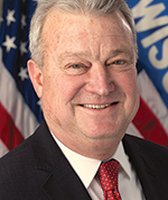Stand up for the facts!
Our only agenda is to publish the truth so you can be an informed participant in democracy.
We need your help.
I would like to contribute

A child at a Head Start program in Hernando County, Florida, plays on a swing. The programs are facing cuts under the sequester. (Tampa Bay Times photo)
Sequestration has led to spats about funding everything from air traffic controllers to preschool for poor children to a study about duck penises.
More than two months after the automatic spending cuts started, PolitiFact has reviewed multiple claims about the sequester. We’ve also explained the history of how the debt standoff in 2011 led to the $85 billion in cuts that started in March 2013.
Here’s a look at some of our recent sequester fact-checks:
Head Start
U.S. Rep. Kathy Castor, D-Fla., railed against cuts to Head Start on MSNBC’s Hardball.
Sign up for PolitiFact texts
Castor said that: "70,000 students across America and 2,000 in the state of Florida alone" will lose Head Start access, "because the Republicans refuse to replace the sequester or sit down with us to negotiate a balanced plan."
We’ve heard this 70,000 figure even before the sequester set in. President Barack Obama said that "tens of thousands of parents will have to scramble to find child care for their kids" because of the automatic cuts earned a rating of Half True. PolitiFact found Obama’s claim about child care subsidies and Head Start plausible but unproven, and it wasn’t clear that cuts meant parents would have to scramble to find care.
More than two months after the sequester started, the federal government did not yet have a tally on enrollment reductions nationwide. Our research showed that programs are planning for the cuts in various ways -- some by removing spots for children -- while others found cost savings by reducing cleaning, staff training, equipment or other ways. We rated her claim Half True.
Airports
The impact of the sequester on airports sparked multiple claims.
On April 5, the Federal Aviation Administration announced it had delayed a plan to shutter 149 air traffic towers at small airports. U.S. Rep. Frederica Wilson, D-Fla., took credit.
"Congresswoman Frederica Wilson successfully postpones closure of the North Perry airport tower," announced the headline of her press release.
Wilson had actively protested the closure plans by writing letters, calling the FAA and holding a press conference. But in the end it was the lawsuits facing the FAA -- plus a chorus of protests throughout Congress and elsewhere -- that led to the FAA’s nationwide decision. We rated her claim Mostly False.
On May 10, the U.S. Department of Transportation Secretary Ray LaHood announced that the recently enacted Reducing Flight Delays Act of 2013 will allow the FAA to transfer sufficient funds to end employee furloughs and keep the 149 towers open for the remainder of fiscal year 2013.
U.S. Rep. F. James Sensenbrenner, R-Wis., claimed that "Not coincidentally, 75 percent of the towers the Obama Administration is closing are located in Republican Congressional Districts."
Of the 149 airports slated for closure, four fell inside two separate congressional districts. Of those four, two sat in two Republican districts while the other two straddled a Republican and a Democratic district. Eighty-four (58 percent) of the remaining airports fell squarely inside Republican districts while 61 (42 percent) were in Democratic districts. PolitiFact Wisconsin ruled the claim False.
U.S. House Majority Leader Eric Cantor, R-Va., joined the criticism that the FAA was maximizing the budget cuts’ inconvenience on travelers.
"Why is President Obama unnecessarily delaying your flight? FAA could cut other spending," Cantor tweeted on April 23, 2013.
But the law authorizing sequestration states that cuts must be applied equally. Given that the FAA is a huge federal agency tasked with cutting $600 million, to say there is no wiggle room is a stretch. But sequestration does not allow elimination of entire programs or departments to spend money on other areas, such as paying air traffic controllers. We gave Cantor’s claim a Mostly False.
A few days after Cantor’s statement, Congress passed a plan to give the Department of Transportation flexibility to tap other funds to pay for air traffic controllers’ salaries.
Wacky spending
The internet has been ablaze with claims expressing dismay that despite the sequester, our government continues to spend money on wacky stuff.
In March, the conservative website CNSNews.com published a story about a $384,949 grant from the National Science Foundation for a Yale University study looking at ducks’ sexual behavior and anatomy and the evolutionary consequences. We fact-checked whether the federal government is funding a study about duck penises amid the sequestration. The study is real, and it does indeed explore the unique sexual behaviors and physical characteristics of ducks. It was funded through a National Science Foundation grant that expires this year.
It’s a bit dubious to tie that grant, which was awarded with stimulus dollars, with the current budget cuts, because they arise from different budgetary issues. But is the government subsidizing research on duck penises? It sure is. We rated this claim Mostly True.
We also fact-checked a claim by bloggers that despite the sequester, the Air Force wanted "taxpayers" to fund a fantasy sports league.
Bloggers had noticed a March 19 "request for information" from an Air Force contracting office "seeking sources for providing the Air Force installations a Fantasy Football Program." But the evidence was a "request for information," not a final decision to fund anything.
Meanwhile, the money for it wouldn’t have come from taxpayers, but from "nonappropriated funds" generated by Air Force clubs and other activities designed to boost morale. We rated the claim False.
The National Republican Congressional Committee made a claim that U.S. Rep. Kurt Schrader, D-Ore., "supports Obama’s sequester … but won’t cut $1.6 million to fund new video games." Schrader voted for the 2011 bill authorizing sequestration, along with many Republicans. He voted against two sequestration bills pushed by Republicans that would have sheltered defense at the expense of human services and entitlement programs. Neither of those bills included a line item calling for $1.6 million to be taken out of NASA’s budget for video games. We rated this statement Pants on Fire!
If you spot additional sequester-related claims, contact us at truthometer@politifact.com
Our Sources
See individual factchecks for complete sources.












































